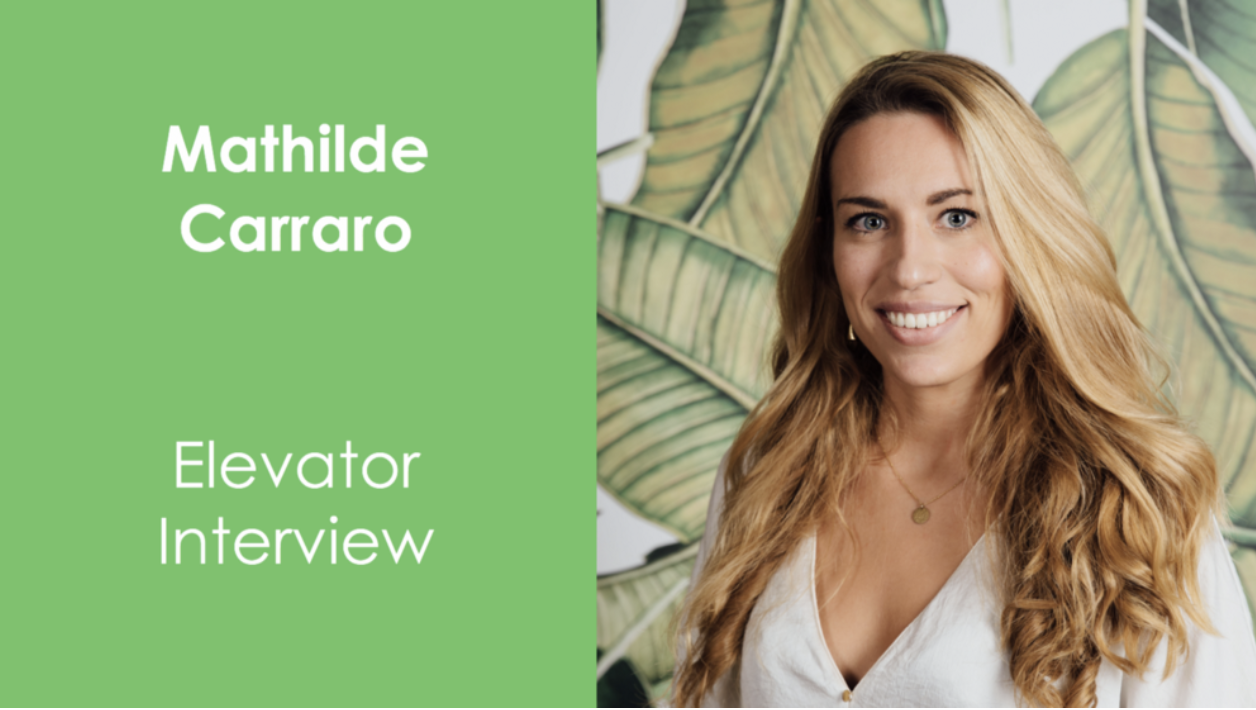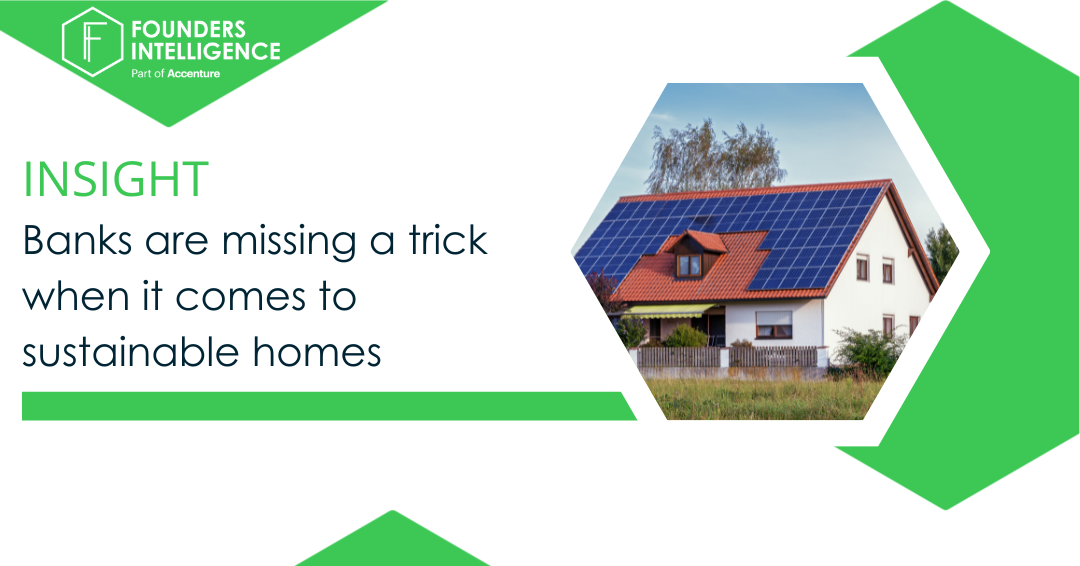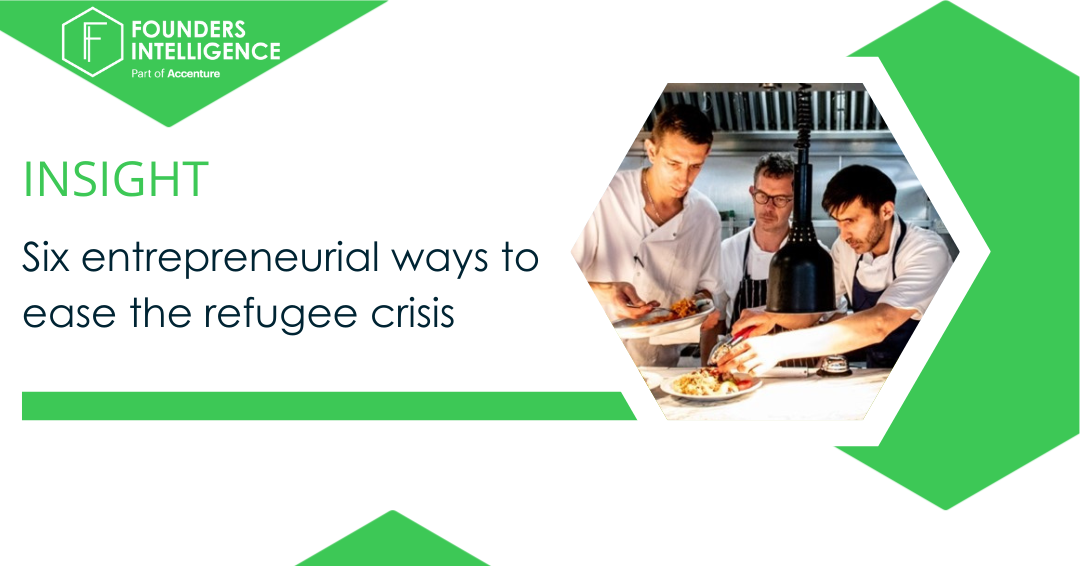Elevator Interview: Mathilde Carraro
Mathilde is a consultant at Founders Intelligence. She has a proven track record of discovering, building and launching new products and services that drive growth. She spent her career in both start-ups and large organisations — first as a UN sustainability consultant, then as an Innovation and Growth Manager at a FTSE100 company and currently working alongside corporates and founders at FI on projects across consumer goods, media, finance and mobility. She is passionate about designing and delivering innovative solutions that drive change, particularly directed towards sustainability objectives.

1. — What is your favourite start-up? Why?
I am most interested and fascinated by start-ups that can bring about structural shifts, especially societal and / or environmental ones. Some of the start-ups I’ve seen recently with the potential to move the needle are Bioo and REEF.
- One start-up with potential for deep impact in climate change is Bioo — they’re a Spanish company developing cutting-edge technology to generate novel renewable energy from plants. Their products aim to turn plants into electricity and biological batteries using bio sensors, with applications for smart architecture to agriculture. It’s part of the boom of science being commercialised at a rapid scale.
- Another passion area of mine is smart cities, REEF is one of the start-ups I am bullish about in this space. They’re reimagining the way goods and services are moved in urban settings: they repurpose unused or under-utilised spaces throughout the cities for different uses, from micro-warehouses, to micro-clinics, dark kitchens etc. This dense network of spaces allows consumers and businesses to deliver goods and services around more sustainably and more efficiently. REEF shows that flexible and multimodal urban space solutions could be the future. And there’s an increasing amount of activity at the intersection of design, architecture, and tech to reimagine the fabric of society optimising for efficiency, sustainability, functionality and profit.
2. — What is your entrepreneurial power?
I always overlooked the power of intuition — it is usually dismissed in favour for quantitative skills, data, logic. They say you can trust your gut, you should trust data. But I’ve found that using my intuition to quickly make sense of complex situations, to understand what people want and mean, and build consensus can be equally powerful. In particular, it’s been very valuable to me at FI where often, uncertain environments don’t lend themselves to using data alone. An intuitive mind allows you to make decisions fast, to respond to clients’ and founders’ needs and give them recommendations. Ultimately, intuition doesn’t dismiss logic, it is able to contextualise logic at speed.
3. — What podcast / book have you enjoyed? (relevant to FI ideally)
The Mission Economy — the thesis of the book is about how we might take the ambition of the Apollo moonshot mission in the 60s and “apply the same level of boldness and experimentation to solve the biggest problems of our time — from health challenges to environmental ones’’. The book gives hands-on practical advice to governments and corporates on how to use the moonshot as a blueprint to design and deliver ambitious innovation projects today. How? Using the motivating power of a big challenge to design a project, and constructing ambitious but carefully constructed public-private collaborations to deliver it. This approach not only resulted in one of the biggest achievements for humankind, but also brought about many positive spillovers: a lot of innovation used for that mission formed the basis for the tech we see today, from the modern computers, scanners, cameras, insulation to the computer mouse.
4. — What lesson would you have for corporates that you’ve learned FI?
It can help to run innovation initiatives as a separate entity with different processes, resources, which can help bypass traditionally long checklists, risk assessments and approval processes that weaken your time to market. A separate unit can also help avoid potential reputational damage in case a pilot does not go as planned, and help gain very clear market signals from consumers. And lastly, be patient and resilient.
5. — What is an interesting problem you’ve tackled at FI?
As part of a project with a large FMCG, we worked to figure out how to make a more circular, more sustainable food supply chain. Solutions included sustainable ingredient sourcing, regenerative agriculture, supply chain efficiencies, and food waste reduction. We found there were cutting-edge solutions in the upcycling space, which looks at ways to turn waste into new products (ingredients, finished products, packaging). For instance, using milk waste from ice-cream production to manufacture new drinks or sustainable packaging, or spent beer grains to make snacks and flour. The biggest barriers are cost and scalability (in the short-term), but the potential is huge, the technology is moving fast and becoming cheaper.

